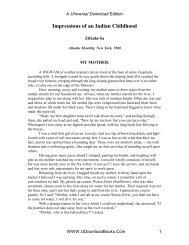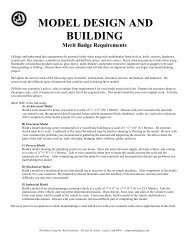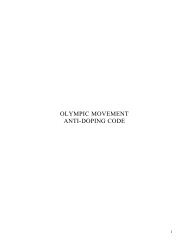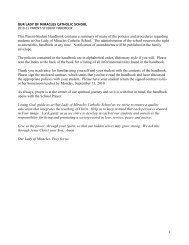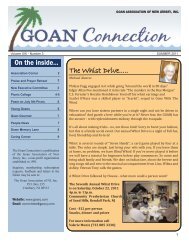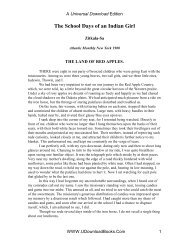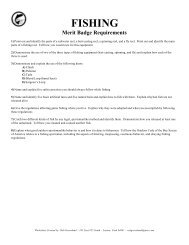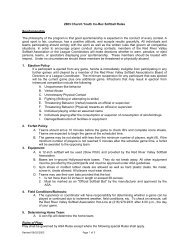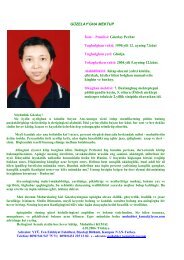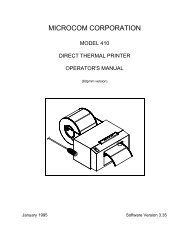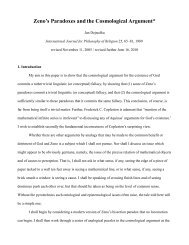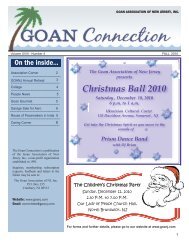Dummett's Backward Road to Frege and to Intuitionism - Tripod
Dummett's Backward Road to Frege and to Intuitionism - Tripod
Dummett's Backward Road to Frege and to Intuitionism - Tripod
Create successful ePaper yourself
Turn your PDF publications into a flip-book with our unique Google optimized e-Paper software.
in reported speech (1970f: 58–59). I think this sentence is not an anomalous break in the discussion of<br />
reported speech, that is, is not an odd shift of <strong>to</strong>pic <strong>to</strong> cus<strong>to</strong>mary sense <strong>and</strong> cus<strong>to</strong>mary reference. I think<br />
this sentence is a continuous, not <strong>to</strong> say integral, part of the two-paragraph discussion of indirect sense<br />
<strong>and</strong> indirect reference. In other words, I think this sentence indicates an exception <strong>to</strong> <strong>Frege</strong>’s rule that<br />
expressions beginning with the singular definite article refer <strong>to</strong> objects. The exception is precisely for<br />
reported speech, i.e., indirect quotation, which by definition refers <strong>to</strong> senses, as opposed <strong>to</strong> direct<br />
quotation, which refers <strong>to</strong> names (1970f: 59, 65; 1980c: 149). Senses are indirectly tied <strong>to</strong> quotation<br />
because they must be garbed in language; thus for <strong>Frege</strong>, the identity of a sense is never directly given<br />
<strong>to</strong> us, but ultimately only via names, as functionally opposed <strong>to</strong> cus<strong>to</strong>mary references.<br />
I think this is obscured by the fact that the two paragraphs in question mainly discuss the<br />
reported speech of a speaker, while in “the sense of expression ‘A’,” “A” is a piece of speech not being<br />
attributed <strong>to</strong> a speaker. But “A” would not be an expression at all unless someone could use it, <strong>and</strong> in<br />
that broad sense “the sense of expression ‘A’” does report speech. There is no doubt that words are<br />
being quoted here. We often quote words without quoting a speaker. We simply surround the words<br />
with quotation marks. E.g., “Fermat’s Last Theorem,” which is just an “A”.<br />
Dummett is right that singular definite descriptions of the form “the F” cus<strong>to</strong>marily refer <strong>to</strong><br />
objects, because cus<strong>to</strong>marily they logically function as object-names. But if I am right, <strong>Frege</strong> classifies<br />
“the sense of expression ‘A’” as indirect quotation, <strong>and</strong> therefore it has no cus<strong>to</strong>mary reference, but<br />
only an indirect reference, which is its sense. Unless Dummett has independent evidence that some<br />
senses are objects, there is nothing here <strong>to</strong> show that some senses are objects. Indeed, on my reading it<br />
follows that no senses can be objects, since senses are essentially indirect references. By parity of<br />
reason, “the thought that A” refers <strong>to</strong> a thought as opposed <strong>to</strong> an object. The test is precisely that it<br />
“designates” a thought (<strong>Frege</strong> 1970f: 66; see 59), <strong>and</strong> the mark is precisely that we are “concerned”<br />
with thought as opposed <strong>to</strong> reference (1970f: 63, 67). At best, it could only refer <strong>to</strong> an object which<br />
38




